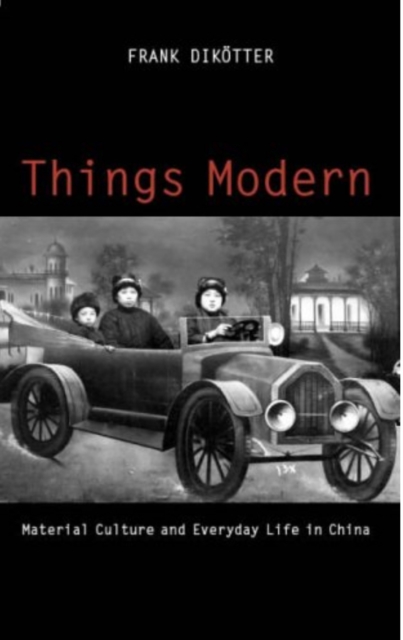
Things Modern : Material Culture and Everyday Life in China Hardback
by Frank Dikotter
Hardback
Description
How do people relate to things? Much has been written about social movements in modern China, but next to nothing is known about the revolution which transformed the texture of everyday life.
This is the first book to map the many changes in the material landscape of China from the mid nineteenth century to the advent of communism in 1949.
In the late nineteenth century anything local was increasingly rejected as a signifier of backwardness, while imported goods were embraced as prestige symbols.
Modernity had to be brought home to propel the country into the world of 'civilised' nations and join a universal march towards progress.
But contrary to other parts of the world, for instance Africa and Latin America, the material goods and technological innovations associated with foreign modernity were not merely imported for elite consumption; they were copied locally and rapidly made available to much larger sections of the population.
Debunking the myth of 'hostility toward alien things' which is claimed to have slowed down China's inclusion in the global economy, Dikotter in this richly illustrated book analyses how a very pragmatic attitude towards material goods prevailed, as most consumers bought the new and discarded the old without misgivings.
They not only embraced new commodities, but rapidly started producing them for an export market in the twentieth century: cheap goods made in China can be found everywhere today, just as porcelain made in China pervaded the world several centuries ago.
If an essential element of a rapidly changing world is the capacity to innovate, could China be more in tune with modernity than Europe?
Information
-
Out of Stock - We are unable to provide an estimated availability date for this product
- Format:Hardback
- Pages:397 pages, Illustrations, unspecified
- Publisher:C Hurst & Co Publishers Ltd
- Publication Date:01/11/2006
- Category:
- ISBN:9781850658153
Information
-
Out of Stock - We are unable to provide an estimated availability date for this product
- Format:Hardback
- Pages:397 pages, Illustrations, unspecified
- Publisher:C Hurst & Co Publishers Ltd
- Publication Date:01/11/2006
- Category:
- ISBN:9781850658153






